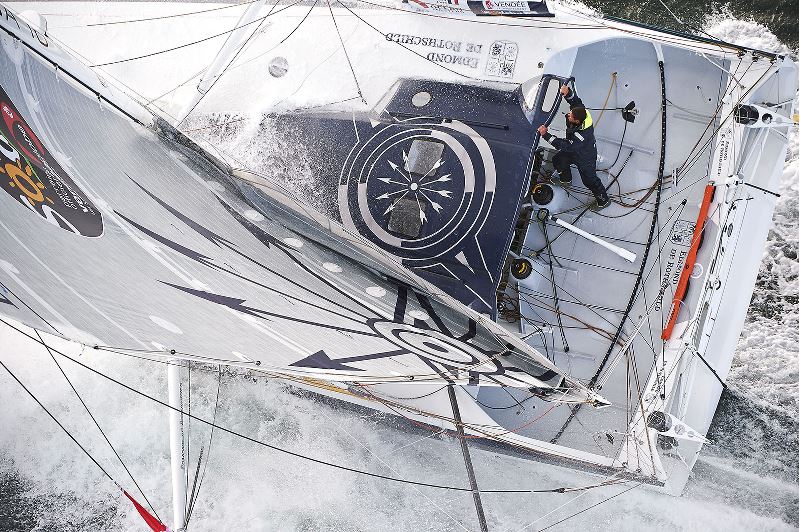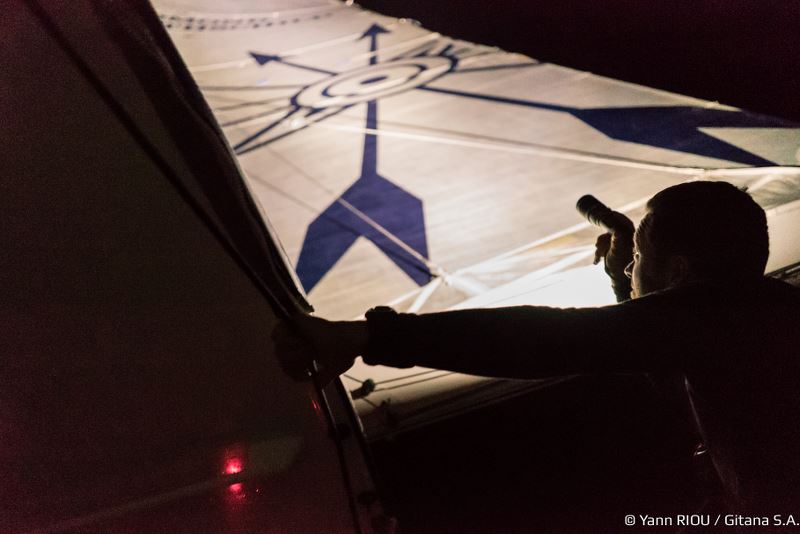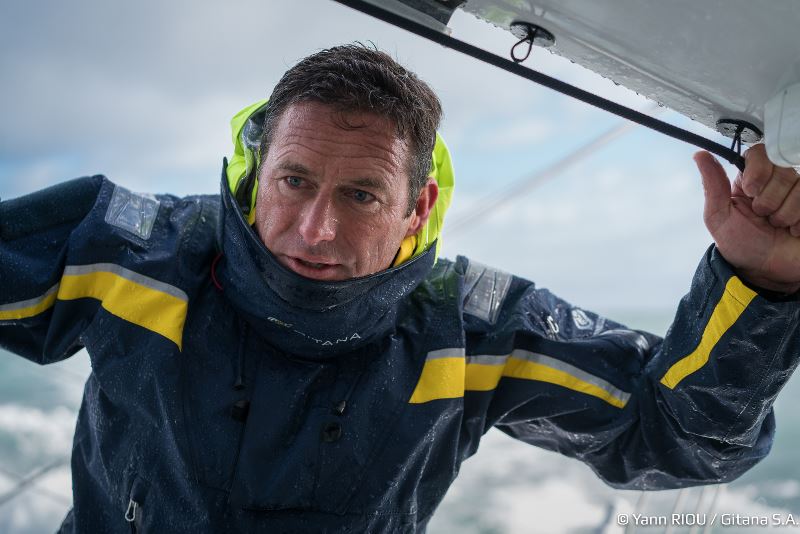
SEEING, BUT HOW?
At first sight, seeing is essential. Only, with this flat, high volume hull up forward, a real benefit in terms of speed, hundreds of litres of sea water sweep across the deck of Gitana 16, making the sailor’s protection essential. As such, Sébastien spends most of his time taking shelter under the cuddy, which covers the watch and manoeuvring station, whilst his eyes struggle to vary the viewpoints.
“As soon as you’re sailing 20 miles offshore, the boat is under water and you can no longer see in front of you,” he explains. “Even if you poke your head out, you can’t see anything. Leaving the cockpit means you expose yourself massively, battling against the elements and inviting a great deal of inflow. That’s the name of the game but you only go up top when strictly necessarily, otherwise you live down below or under the cuddy. At the start, for measurement and weight reasons, that section was very opaque, but we’ve added some Plexiglas openings. In this way, I can see the sails, sky, clouds, sunsets, squalls, birds, horizon and other boats, etc. I can anticipate better and I can make the most of my surroundings.”
SEEING IN THE DARK

Life at sea involves routine and the all too important rituals. “At night, you lose your sight and therefore a big reference,” he continues. “Before the sun sets, I go over that day’s trimming so that helps me through until the next day. We really like to have our way lit by the moon but if it’s pitch black, you light up your sails, you seek out fresh references and you refer back even more to the numbers on the screens. You also remain more on the alert, like a cat, ready for anything. As such, it’s not necessarily the kind of night that you’re going to get any sleep... you relax more once day breaks.”
“It’s down to me to adapt and the not the reverse,”
assures Sébastien Josse.
SEEING LAND
To circumnavigate the globe under sail, you need to traverse all the longitudes of the earth and the route encompasses the Deep South around Antarctica. In reality, the sailors go round the capes of Good Hope and Leeuwin several hundred miles to the South of Africa and Australia. As such, seeing land is very rare in the Vendée Globe, which isn’t a bad thing Sébastien admits. “The coasts are often a source of concern, due to the maritime shipping, the swell and the wind ruffled by the landscape or the risks of collision with blocks of wood, containers or cetaceans. Ultimately, Cape Horn is the only one you’re happy to see and with it comes a very special emotion!”
SEEING A FELLOW COMPETITOR?
With the boats’ performances being increasingly similar and trajectories that are a little ‘forced’ due to the exclusion zones, the solo sailors can end up within sight of each other, side by side, even after several weeks at sea. “It’s good to have a fellow competitor on the radar but I don’t necessarily like to see them with the naked eye, otherwise you can’t take your eyes off them. You enter into a game of close-contact racing and start sprinting whilst you’re midway through a full Iron Man,” admits the skipper of Gitana Team
AND SEEING YOURSELF?
In response to the question, do you carry a mirror on a round the world? “Yes, but only to shave,” is Sébastien’s first response. “Once a week, I allow myself to take a bit of care over my person. I have a sea water shower, I remove the salt from my body and put on a clean shirt and a bit of music and that bucks me up!” Otherwise you never look at yourself? “Yes, when you hit yourself, to see if you’re injured... and also when you get to the point where you’re really suffering from fatigue. When you no longer really know where you are, looking at your face, its shadows, its sunken features, seeing yourself helps to gain self-awareness.”

Next week, discover #2 TOUCH
